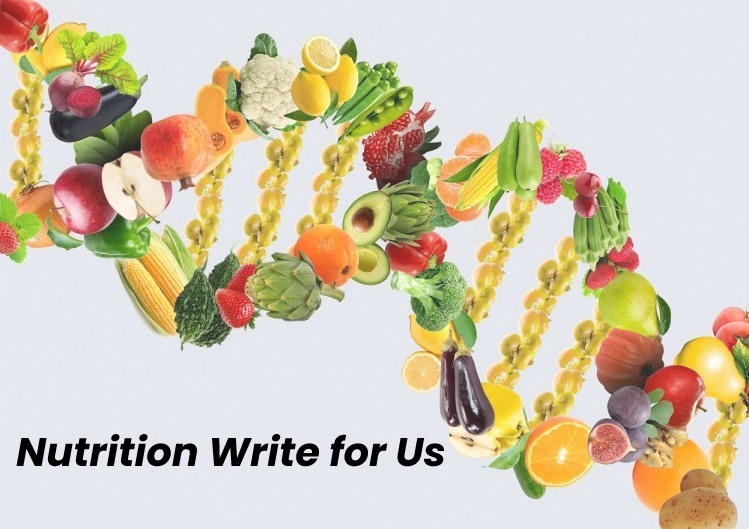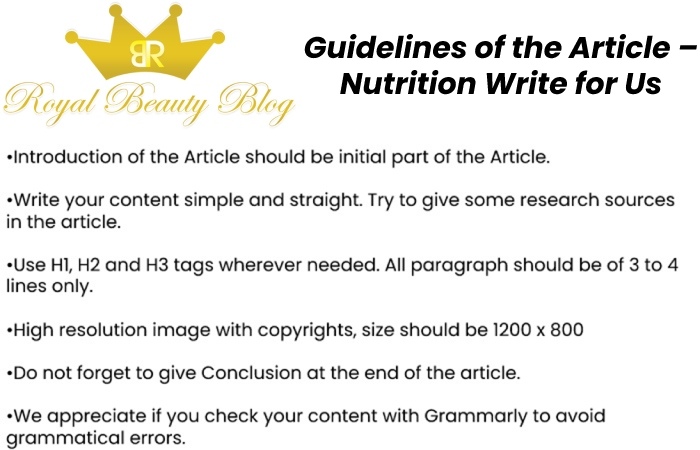What is Nutrition?
Nutrition Write for Us – “Nutrition takes in food and converts it into energy and other vital nutrients needed for life.”
 Nutrients are substances that provide the energy and biomolecules needed to perform the body’s various functions. All living organisms need nutrients for their proper functioning and growth. But they show discrepancies in how they respond to this demand. Some animals feed on simple inorganic compounds to meet their nutrient needs, while others use complex compounds. Feeding habits vary from species to species.
Nutrients are substances that provide the energy and biomolecules needed to perform the body’s various functions. All living organisms need nutrients for their proper functioning and growth. But they show discrepancies in how they respond to this demand. Some animals feed on simple inorganic compounds to meet their nutrient needs, while others use complex compounds. Feeding habits vary from species to species.
Autotrophic Nutrition
In autotrophic mode, organisms use simple inorganic substances such as water and carbon dioxide in the presence of light and chlorophyll to synthesize food on their own. The process of photosynthesis is used to convert light energy into food, such as glucose. These organisms are called autotrophs. Plants, algae and bacteria (cyanobacteria) are some examples where autotrophic nutrition is observed.
During photosynthesis, carbon dioxide and water are converted into carbohydrates. These carbohydrates are stored as starch in plants. The plants then derive the necessary energy from the stored starch. The process of photosynthesis can be clarified in three steps:
- Absorption: The chlorophyll present in the leaves traps sunlight.
- Conversion: The absorbed light energy is converted into chemical energy. And the absorbed water will split into hydrogen and oxygen molecules.
- Reduction: Eventually, carbon dioxide is reduced, which means hydrogen molecules combine with carbon to form carbohydrates (sugar molecules).
The three events are not a continuous process. They may or may not occur sequentially.
Heterotrophic Diet
Each organism is incapable of preparing food on its own. These organisms depend on others for their nutrition. Organisms that cannot produce food independently and are dependent on other sources/organisms are called heterotrophs. This mode of feeding is known as heterotrophic feeding.
Fungi and all animals, including humans, are heterotrophic. Heterotrophs can be of many varieties depending on their environment and adaptations. Some can eat plants (herbivores), and some eat animals (carnivores), while few eat both (omnivores). Therefore, it can be said that the survival of heterotrophs depends directly or indirectly on plants.
Heterotrophs are categorized in different categories based on their mode of feeding. I am:
- Parasites (e.g. leeches, ticks)
- Saprophytes (e.g. fungi)
- Holozoic (e.g., humans, dogs)
How to Submit Your Articles?
To Write for Us, you can e-mail us at contact@royalbeautyblog.com
Why Write for Royal Beauty Blog – Nutrition Write for Us
 Guidelines of the Article – Nutrition Write for Us
Guidelines of the Article – Nutrition Write for Us
 Search Terms for Nutrition Write for Us
Search Terms for Nutrition Write for Us
biochemical
ingestion
excretion
Nutritional groups
Nutrients
Diet
Human nutrition
Animal nutrition
Plant nutrition
carbohydrates
dietary fibre
fats
proteins
minerals
vitamins
water
Chemical Elements
Metabolism
Auxology
Exercise
Nutrition psychology
Physical fitness
Hydrogen
Good Health

